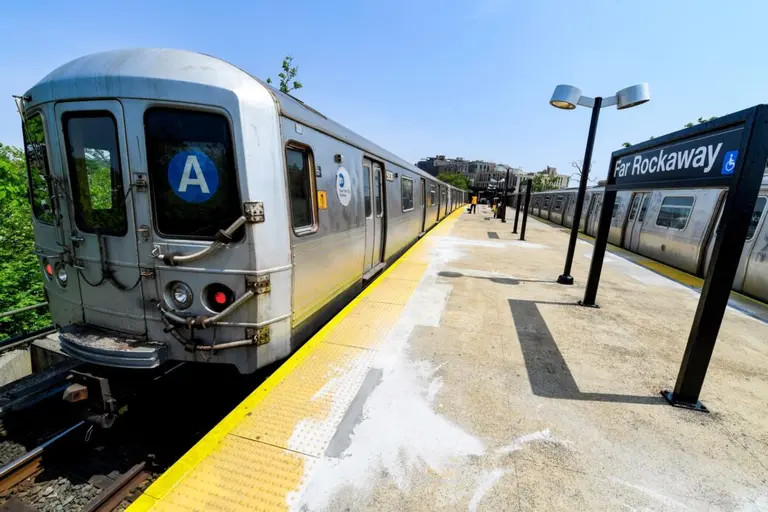Where Will Mayor de Blasio Land on the 421-a Tax Abatement Debate?

Mayor de Blasio via @KevinCase via photopin cc; affordable housing buildings via gkjarvis flickr
Developers have been rushing to break ground on projects before June, when the controversial 421-a tax abatement is set to expire, as it provides incentives to developers for up to 25 years when they reserve at least 20 percent of a building’s units for low- and moderate-income tenants. However, those against the 40-year-old program criticize it for using working people’s tax dollars to build swimming pools and pet hotels for the world’s billionaires; after all, the construction of One57, where a penthouse recently sold for $100 million, was built using subsidies from the program.
But on what side of the debate does Mayor de Blasio, whose goal is to implement “the largest affordable housing program that any city, any state has attempted in a ten-year time span in the history of the republic,” fall? Though many of his supporters oppose 421-a, in order to reach his goal of building 80,000 new affordable housing units–especially in places like East New York where a rezoning would be necessary to allow for denser construction that mandates the inclusion of permanently affordable apartments–de Blasio says he needs the program, according to Capital New York.
A major concern regarding 421-a is that some development sites receive benefits as of right (meaning solely for putting up a new building), while others are required to include affordable housing. The difference is based on geographic location. For example, Manhattan between 14th and 96th Streets and the waterfronts of Brooklyn and Queens must include affordable housing. This is one reason why most tenant groups want the program nixed. They also cite that in 2014, there was $1.2 billion in foregone tax revenue due to 421-a, with 150,000 units receiving benefits. As an alternative, they’re pushing for programs that help working-class and poor New Yorkers afford apartments.
Tenant groups also call for a strong rent control law, a feeling shared by the Mayor, but not the real estate industry. But in order to reach his affordable housing goals, de Blasio needs the support of the real estate community and developers, who support the renewal of 421-a. This is what puts the Mayor in a pickle. To further complicate matters, his fellow Democrats in the state Assembly will likely support 421-a as a way to strengthen rent laws, while the Republican majority will use rent laws as leverage for subsidies.
One of de Blasio’s top aides, Department of Housing and Preservation Commissioner Vicki Been, recently said: “much of [our] success is because we’re in a strong market, we’re benefiting from low interest rates, we’re benefiting from the fact that people are worried with what might happen with 421-a. It’s going to be a big year—421-a is up for renewal, rent regulation is up for renewal, we will introduce a mandatory inclusionary housing in the spring…” Steven Spinola, president of the Real Estate Board of New York, says “Without this critical tax incentive, the city would see a sharp drop off in the production of new housing units, a further skewing of the residential market toward condominium rather than rental production, and an accelerated tightening of housing costs for renters and buyers alike.”
It’s unlikely that 421-a will be completely eliminated. According to Mark Willis, the executive director of New York University’s Furman Center, “There is always the risk that eliminating or significantly curtailing the 421-a property tax exemption would reduce the amount that developers of rental housing would be willing to pay for land. This possible decrease in land values might affect the new development pipeline in the short run. The city must carefully consider this possible impact, especially in light of the need for more housing affordable to middle- and lower-income New Yorkers.” What’s more likely is that the program will be revised, possibly expanding the geographic location that is required to include affordable housing. But whatever happens, we still have almost four months for de Blasio to take a side on the issue.
[Via Capital NY]
RELATED:
- Developers Rush to Break Ground and Add Affordable Housing Before Tax Incentives End
- City Exceeds 2014 Affordable Housing Goals, but Few Apartments Are Below 96th Street
- Mythbusters: Shedding Light on 80/20 Affordable Housing and ‘Poor Doors’
- City Wants to Up Mansion Tax to Raise Funds for Affordable Housing




























